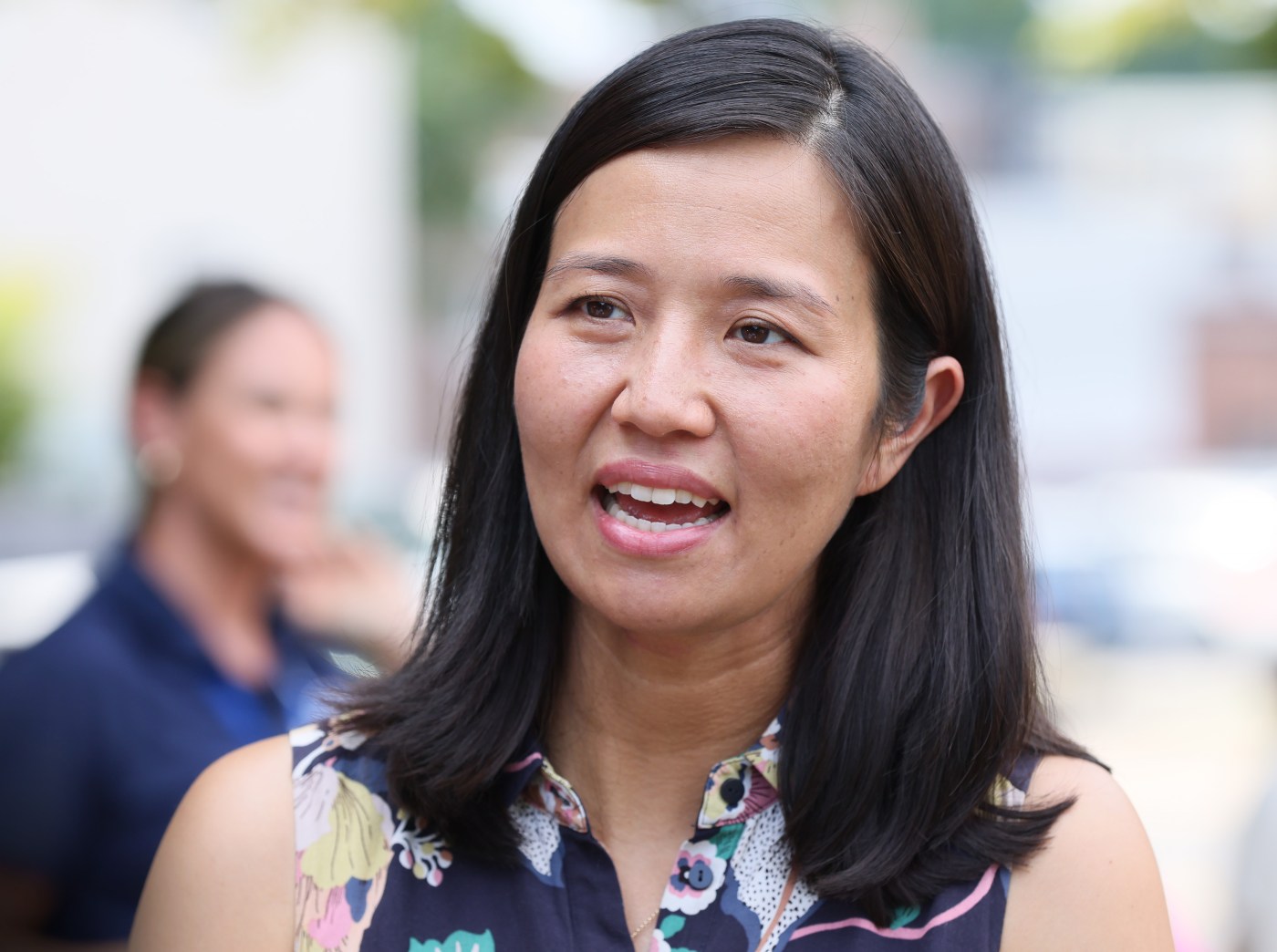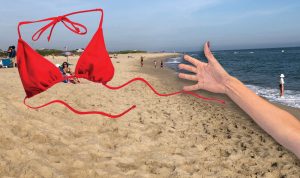
Boston Mayor Wu responds to ‘speculation’ that her influence killed Krafts’ Everett soccer stadium plan
Boston Mayor Michelle Wu weighed in on speculation that she had influence over killing a plan she had expressed concerns with on Beacon Hill that would have cleared the way for the Kraft Group to build a soccer stadium in Everett.
Language included in a multi-billion dollar economic bill that would have freed up roughly 43 acres of land along the Mystic River to build an arena and park cleared the Senate, but not the House, where Wu is said to have more powerful allies and influence.
“I will say I have made my views and hopes clear on this issue, as in every other one that’s before the State House affecting Boston,” Wu said Tuesday on WBUR’s Radio Boston. “There’s a lot of speculation about what happened and why.”
The project’s fate remains up in the air, given that Beacon Hill Democrats from both chambers were unable to reach a compromise by the end of formal lawmaking two weeks ago. Top leaders from the House and Senate have signaled they were ready to call their members back to work on the bill, but work has yet to resume.
Political chatter, amplified by columnists in the Herald and Boston Globe, centers around whether the mayor had engaged in a behind-the-scenes effort to block a plan put forward by New England Patriots owner Robert Kraft through the Kraft Group, whose leadership includes Josh Kraft, a rumored 2025 mayoral candidate.
The Wu administration had expressed concerns, including during a Beacon Hill hearing on the proposal, about the impact stadium attendance would have on traffic in the nearby Charlestown neighborhood, the plan’s lack of parking and the feeling that the mayor and her team were left out of discussions on the matter.
On Tuesday, Wu reiterated some of those concerns, saying that while she is a “huge fan of bringing sports franchises into our city,” and had been “hoping for a very, very long time” that the New England Revolution stadium could be “in the city or nearby,” she remains concerned with the plan’s logistical challenges.
“We need to be able to know that will make sense for our city, and that there will be a way to manage all of those impacts,” Wu said
At the same time, Wu has been vying to redevelop White Stadium into the new home of professional women’s soccer team, as part of a public-private partnership with Boston Unity Soccer Partners. The project received arguably the last key approval on Monday, when the Parks Commission approved a plan to demolish the stadium in the fall.
By comparison, the mayor said she lacks basic information on the private Kraft Group’s “major development” that would closely impact Boston, in that it involves Boston land and transportation impacts that will be fronting into Boston rather than Everett.
“There’s been no proposal, there’s been no information and details,” Wu said. “I’d love to get to a point where we understand more of what it is to take a formal position on this particular plan and design.”
Related Articles
Boston mayor, pro soccer team cleared to demolish White Stadium after heated debate
Advocates make final push to stop Boston, pro soccer team’s plans for White Stadium redevelopment
City Council hits mayor, commissioner over BPD demotion: ‘Troubling’
Boston City Council pushes for mayor to present ‘Plan B’ after tax plan flames out on Beacon Hill
Former Boston city councilor Kendra Lara avoids jail time in 2023 crash, ordered to apologize to homeowner
The Kraft Group released a statement on Aug. 1, shortly after it became clear the economic development bill and project had stalled in the state Legislature, that not only criticized state lawmakers for their failure to move on the measure, but appeared to take a shot at Wu and insinuate that her influence had played a factor.
“Massachusetts’ political landscape is one of the only places where creating opportunities in environmental justice communities and rehabilitation is dictated by the needs and bargaining of political leaders with outside influences and we had hoped for a different outcome for the citizens of Everett and environmental justice for that community,” a Kraft Group spokesperson said.
The location the Kraft Group was eying features a rundown power plant that Everett Mayor Carlo DeMaria, a proponent of the project, has said can only be cleaned up with the financial and political power of a private development firm.
Language tucked into the bill that cleared the Senate would have removed the targeted land at 173 Alford St. from a designation that restricts its use to commercial fishing, shipping, or other vessel-related activities, and allow a developer to convert it into a professional soccer stadium and waterfront park.
“This legislation isn’t about one project; it’s about the future of our city,” DeMaria said in a statement after the bill’s failure. “I am angry that the focus hasn’t been on the fact that Everett is an environmental justice community losing millions of dollars in tax revenue and instead is being forced to continue to tolerate a dirty industrial site when we could be starting the formal process to use private funds to clean up the area and start collecting important tax revenue.”


